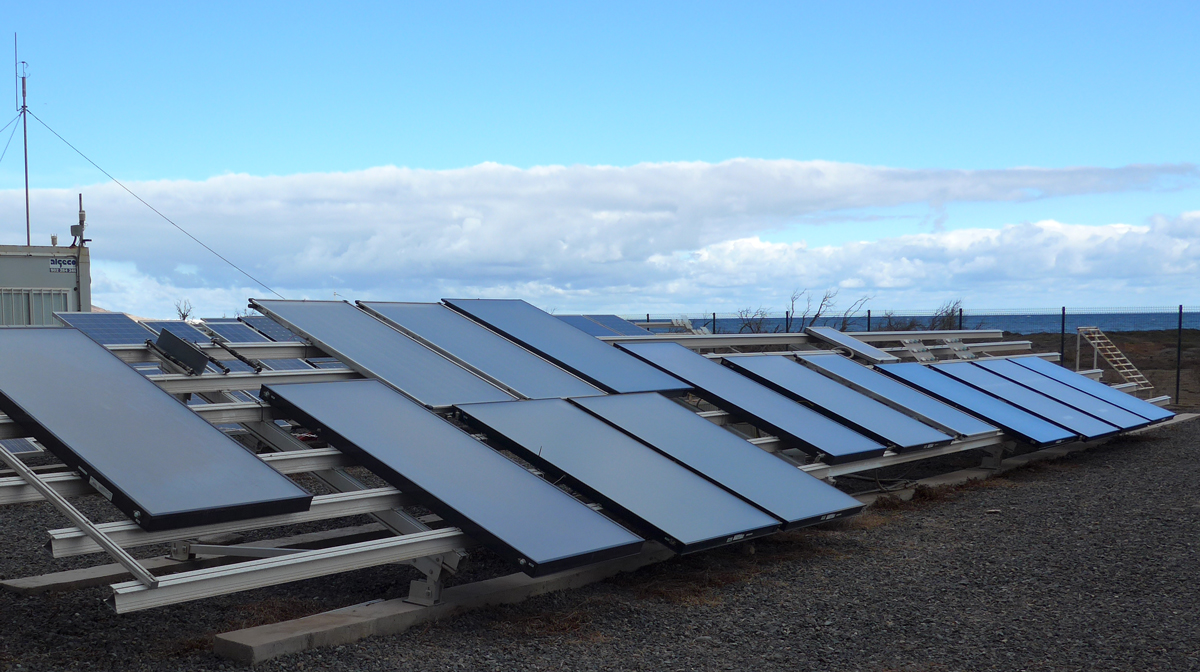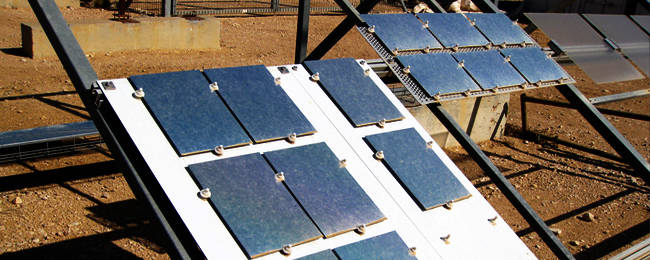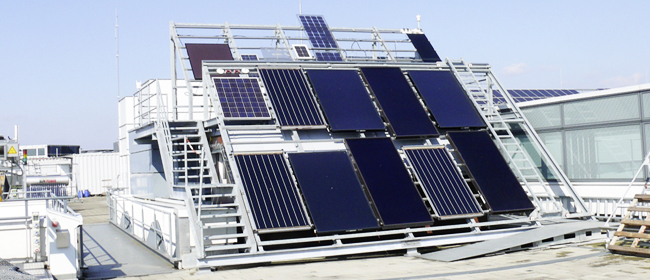| Duration: | April 2011 - December 2015 |
| Contracting Authority/ Sponsors: | German Federal Ministry of Economic Affairs and Energy (BMWi) |
| Project Partners: | WT Stuttgart, Bosch, Vaillant Group, Viessmann, alanod solar, ALMECO TINOX, BlueTec, CentroSolar Glas, DMS, Kömmerling, Otto Chemie, Deutsches Kupferinstitut, Interfloat, Monier Group, ritter gruppe, Sonnenkraft, Wagner & Co |
| Website: | http://speedcoll.de/en/home.html |
| Project Focus: |
SpeedColl – Development of Accelerated Aging Tests for Solar Thermal Collectors and their Components



SpeedColl investigates the durability of solar thermal collectors and their components. As part of this collaborative project, collectors are being exposed to the weather conditions found in a variety of climatic regions. The data gathered is used to develop accelerated aging tests and models. The aim is to detect possible weak points early and improve the reliability of solar thermal collectors in the long term.
SpeedColl is conducted as a collaborative project between the Fraunhofer Institute for Solar Energy Systems ISE in Freiburg and the University of Stuttgart’s Research and Testing Center for Thermal Solar Systems (TZS). It focuses on the aging of solar collectors. Depending on the particular climate of their installation, collectors are exposed to a range of different and oftentimes harsh ambient conditions. Hence, they are the components in a solar thermal system which are subjected to the highest stress.
Actual exposure data is being collected at various outdoor exposure test sites run by the involved research centers. These test sites cover different critical climatic zones. Individual components and complete collectors are investigated. The effects of the stress factors and combinations of stress factors are examined using data gathered during extensive and continuous monitoring of exposure. Based on this, aging models and validated testing procedures are developed for components and collectors.
The results gained from the natural and accelerated exposure tests are used as the basis for estimating the service life of the test objects. This is essential for optimizing the quality and durability of solar thermal collectors. Thus, the project makes a vital contribution to boosting the long-term strength of the German industry in the area of solar thermal technology.